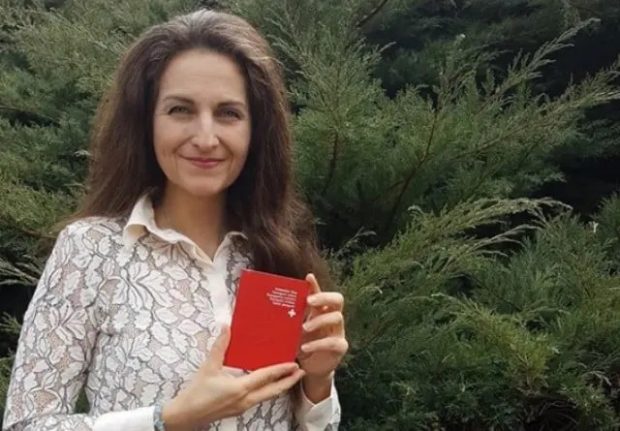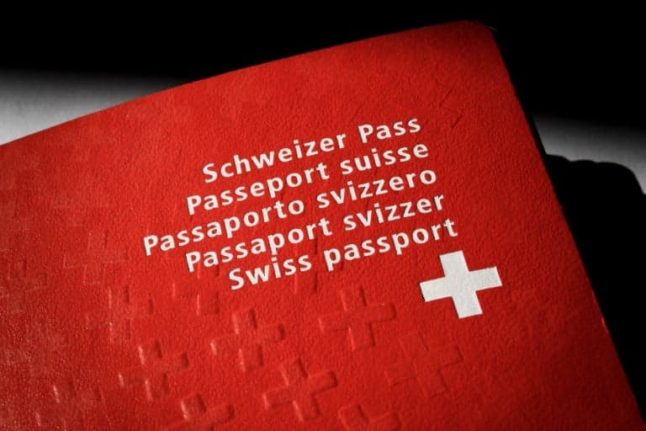There is enough evidence to suggest that some citizenship requests are denied for arbitrary reasons, while other rejections are based on valid grounds. Whatever the case, being turned down simply means a bump in the road to citizenship, not necessarily the end of it.
This means that if you are patient and determined in your mission to become Swiss (given, of course, that you meet all the conditions), then there are some options open to you.
Know the reason
A lot depends on why your request was denied: was it because you don’t meet all the criteria for either an ordinary or fast-track naturalisation?
For instance, do you fill all the residence / language / integration requirements?
Is there something in your past or present that disqualifies you from naturalisation, such as a criminal record, or a history of relying on social aid?
READ ALSO: Why your Swiss citizenship application might be rejected – and how to avoid it
When the authorities hand down their decision, they must indicate the reason why your application was rejected. You can then see whether it was based on legitimate factors, or if the decision was not made objectively.
It is difficult to argue with the decision in the former case, though it does not necessarily mean your chances of becoming Swiss are doomed.
Under certain circumstances, naturalisation authorities can reverse their decision — if, for instance, you pay off all the welfare money you received, and re-apply for citizenship afterwards.
What if the rejection was based on more arbitrary or clearly objectionable reasons?
If you think that’s the case, then you have the possibility to appeal the decision.
As requests for citizenship are handled at different levels of the government (federal, cantonal, and communal), how you go about filing an appeal depends on where in the naturalisation hierarchy your application was denied.
If it was rejected at the federal level, by the State Secretariat for Migration (SEM), then it will be difficult, if not impossible, to get that decision overturned. That is because decisions at that level are based on factual, rather than arbitrary criteria — for instance, insufficient length of residence or applying for citizenship with the wrong permit.
READ ALSO: Can I apply for Swiss citizenship with a B permit?
If you nevertheless think that SEM’s ruling is not reasonable (based on facts rather than emotions), you can appeal to the Federal Administrative Court — read more about this process below.
In the event that the application was denied by cantonal or communal officials, you will need to contact local naturalisation authorities and ask how the appeal process works in your area.
Most likely, such cases will be handled by district or cantonal courts.
Know that if your appeals are rejected, but you have reasonable proof that the decision of migration authorities, or the cantonal and the Federal Administrative Court, was discriminatory — that is, determined by your nationality, ethnic background, religion, or sexual orientation — you can then appeal to the Supreme Court, Switzerland’s highest judicial authority.
READ ALSO: What you should know about Switzerland’s courts

How do you file an appeal?
Be prepared for a lengthy process which could take months or even longer.
Your local authorities will let you know how to proceed if your appeal is filed at that level.
Petitions to the Federal Administrative Court should be made in writing, either by post or online, in one of the official languages.
You should enclose all the documentation, including previous rulings by lower courts.
Are there any costs you will have to pay?
According to the Court’s website, “as a general rule, fees are charged for proceedings. Procedural costs are usually paid by the unsuccessful party”.
So if you lose your appeal, you will have to pay the amount, to be determined by the case. If you win, however, the government will be responsible for all the fees.
What are your odds of winning?
It all depends on merits of your case.
There have, however, been some successes.
One occurred in 2018, when a Dutch woman called Nancy Holten finally received her Swiss passport after her application was denied not once but twice previously, because she complained about cow bells in her commune of Gipf-Oberfrick, in the canton of Aargau.
After the second rejection, she filed a complaint with cantonal authorities, who ultimately took her side against the village committee.

Another, more recent case, involves a man whose request for naturalisation was denied by canton Schwyz because he had a minor driving mishap in 2020, which injured no one and didn’t involve drugs or alcohol.
The man appealed the decision to the cantonal court, which overturned the verdict in 2022, ordering that the man be naturalised.



 Please whitelist us to continue reading.
Please whitelist us to continue reading.
Member comments